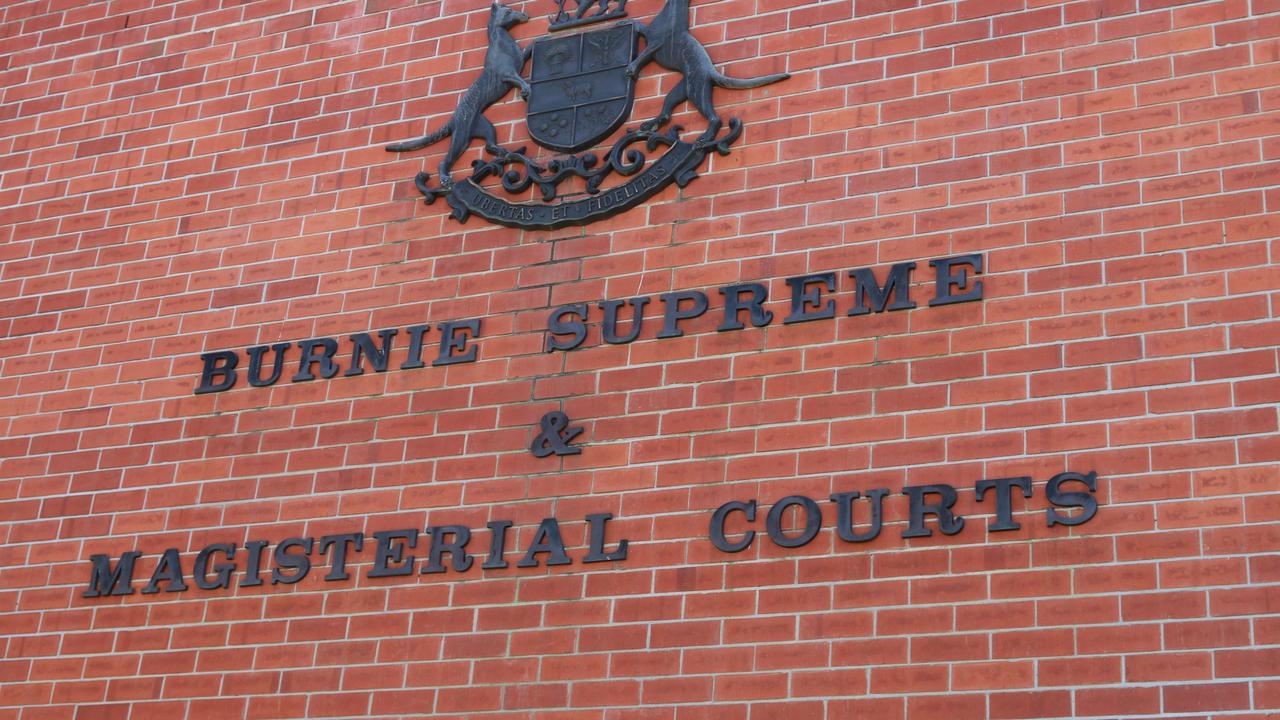‘Woefully inadequate’: Education department secretary admits failings when investigating child sexual abuse
Two lawyers have revealed the “aggressive” approach used by Tasmanian government lawyers defending child sexual abuse civil claims against the state. LATEST >>

Police & Courts
Don't miss out on the headlines from Police & Courts. Followed categories will be added to My News.
TWO LAWYERS have laid bare the “blunt and cruel” tools used by Tasmania’s state government in defending historical child sexual abuse civil claims.
Angela Sdrinis and Warren Strange, giving evidence before the commission of inquiry on Thursday, said the “hard line” and “aggressive” approach taken by the Tasmanian government in defending claims often re-traumatised victim-survivors.
Ms Sdrinis, who is currently preparing a class action for more than 100 former detainees of the Ashley Youth Detention Centre, said when survivors were listened to, believed, apologised to and offered an appropriate amount in compensation – it could “completely change their lives”.
“Where it’s adversarial, litigious, you have to prove every allegation … that can actually destroy survivors,” she told the inquiry.
“The adversarial legal process is not great. It’s a very blunt and cruel tool to be using in these historical abuse cases.”
Ms Sdrinis said from early on in her involvement, she’d tried to convince the government to “consider other ways of doing things”.
She said one of the problematic approaches taken by Tasmania’s government was using the legal defence that a child had consented to the abuse.

“I raised on a couple of occasions with the Solicitor-General’s office that I thought that defence was repugnant, inappropriate, and frankly wrong at law, but it really wasn’t until we went to the media … the Attorney-General Elise Archer, within four hours, made it very clear that defence would no longer be relied upon.”
Ms Sdrinis said she believed Ms Archer might have been “blindsided”, unaware government lawyers had been using the defence.
Mr Strange said it usually took “at least 22 years” for survivors to disclose their child sexual abuse.
He said delays by Tasmanian government lawyers could then “exacerbate distress” for survivors.
“They are national problems, but Tasmania’s position is probably worse than the majority of other jurisdictions,” he said.
“When they take a hard line or aggressive line in responding to those claims, it just can take the survivor back to their childhood experience.”
‘Woefully inadequate’: Education dept secretary admits failings
TASMANIA’s education department secretary has admitted to “horrifying” failings and a “woefully inadequate” method of investigating a state school teacher accused of child sexual abuse.
On Thursday, Tim Bullard continued giving evidence to the child sexual abuse commission of inquiry – admitting mistakes were made when dealing with a teacher referred to as Wayne*.
Following a two-year investigation, the department found most of the claims Rachel* made were proven – including that Wayne had tucked her into bed, had made the comment “nice a***”, drawn an explicit image on her ankle, piggybacked her, provided her with alcohol and contacted her while under a direction not to do so.
The department also found Rachel’s claim was true that Wayne had provided her with a T-shirt that read “MILF (mother I’d like to f …) in training”.
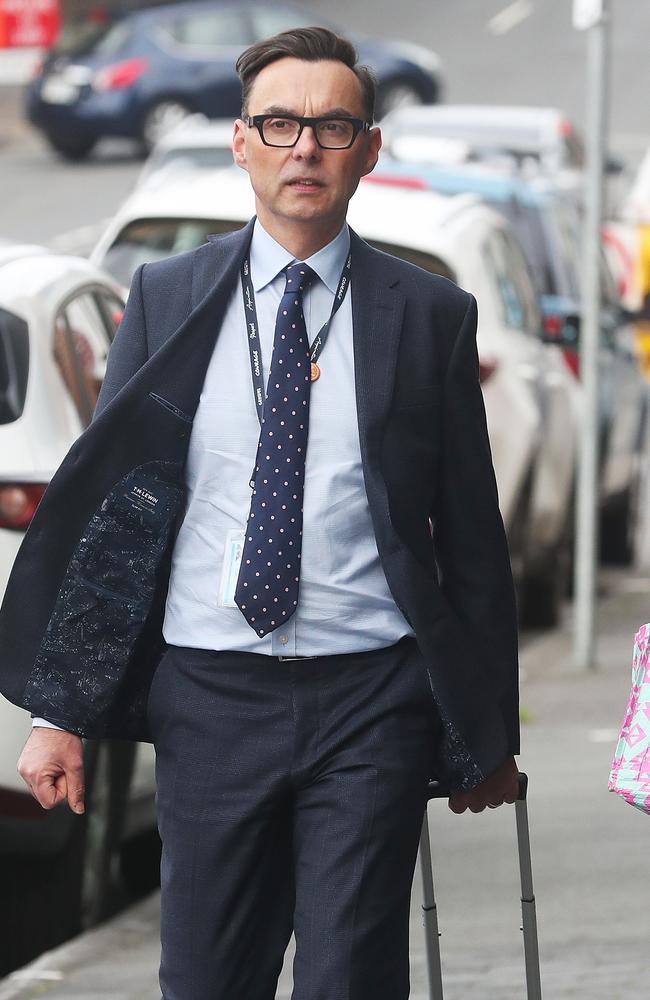
“And it was ultimately found it (the T-shirt) wasn’t worn and so wouldn’t bring the state into disrepute?” counsel assisting the commission, Elizabeth Bennett SC, asked.
“That is correct,” Mr Bullard replied.
The secretary agreed it shouldn’t have been relevant whether or not the “MILF in training” T-shirt was worn or not.
The other allegations Rachel made about Wayne were found “not relevant” because they were not done “in the course of employment”.
Mr Bullard said that decision would “absolutely” not be made today, as Rachel and Wayne’s student-teacher relationship had been formed while the child was a student at school.
He said it was “horrifying” and a “significant failing” that the department had published a public notice in a newspaper during 2007 “expressing confidence in Wayne”.
The notice cleared Wayne of breaching the State Service Act, noting he’d been offered a job in another school.
The secretary said Wayne had ceased teaching after he informed him of “fresh allegations”.
Mr Bullard also admitted the department did not yet have steps in place to ensure its independent investigators were gender-balanced and trauma-informed.
Mr Bullard’s evidence is continuing.
Inquiry hears boy was “high-fived” after school assault
A TEACHER has revealed a disturbing classroom incident, when a boy who sexually assaulted a female student was “high-fived” by his friends and faced zero repercussions from the school.
Nigel Russell, who gave evidence to Tasmania’s child sexual abuse commission of inquiry on Tuesday, also said the victim – and her classmates – received no support after the incident.
The part-time teacher said when he returned to work a few days later, the school hadn’t taken any action over the incident, which was captured on security camera during a PE class.
“When I did get back to class, I found out that victim had been expected to turn up to her place of learning, that classroom, with the perpetrator there,” he said.
“The boys who condoned the perpetrator and celebrated the incident, I asked if their behaviour had been addressed and it hadn’t. The response from the principal was ‘well, too much time’s gone, too much water’s gone under the bridge.”
Mr Russell – who said he “fell in a heap” over the incident, took months off from work as a result of the episode.
He said he felt “really angry” about the lack of support from his workplace.
“Over the last little while, or maybe decade, there’s been quite a bit of austerity within the department, and education has been distilled down to literacy – primary, and numeracy – secondary, and all the other subjects … are a tertiary concern,” he said.
“Education’s a social investment.
“The perpetrator of the sexual assault in my class … for that young man, he needed some social and emotional education and it’s not being offered. Well it is being offered, but at a token suggestion, because of the resourcing.”
Mr Russell said the perpetrator dropped out of school in Grade 8.
“Education’s not a reward for good behaviour,” he said.
“That’s done nothing for him, his family, his community. We can do better than that.”
Education secretary issues fresh apology to school abuse victims - May 11
OVER the past 18 months, Tasmania’s education department has stood down 32 employees accused of historical “matters of concern”, secretary Tim Bullard has confirmed.
Mr Bullard, while giving evidence to the child sexual abuse commission of inquiry on Wednesday, said he was confident the department had now “looked at” all matters of historical concern that had been raised.
He also issued a fresh apology to people who were sexually abused as children in Tasmania’s state school system, describing evidence given by victim-survivors during the inquiry as “confronting”.
Mr Bullard also acknowledged the department had at times exacerbated trauma suffered by victims.
“I want those people who’ve been courageous and brave enough to give evidence to know that I have heard them, I believe them. I apologise that the way in which they’ve interacted with the department has not always been respectful,” he said.
“We are committed, absolutely committed, to learning from this commission and correcting – so far as we possibly can – the wrongs of the past.”
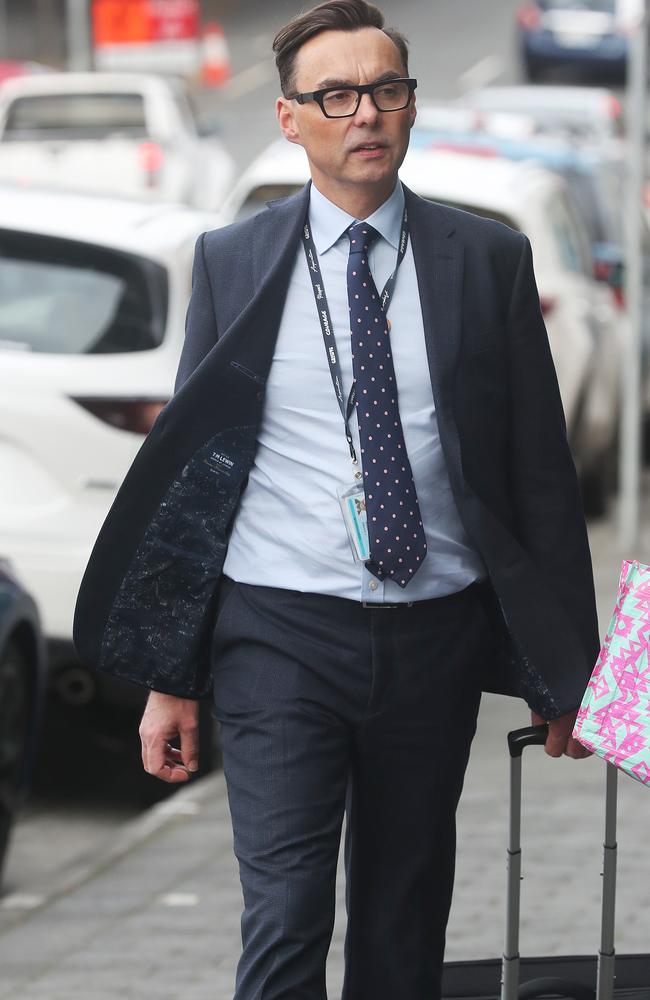
Mr Bullard extended the apology to victim-survivor Rachel*, who gave evidence on Wednesday about how she and her mother had been “muzzled” from speaking out – or potentially face legal action.
Counsel assisting the commission, Maree Norton, asked if Mr Bullard had “free rein” to issue such an apology to survivors, or if it needed to be cleared by the Office of the Solicitor-General.
“I make the apology that I want to make,” Mr Bullard said.
Reflecting on the two-year investigation into Rachel’s case, Mr Bullard said the department didn’t set time frames “because we don’t want to be seen as fettering the independence of that investigator”.
He said the external investigator undertaken by the department was a company that “trades under the name of a single person but has a number of investigators”.
Mr Bullard wasn’t able to tell the commissioners, or estimate, the number of investigations currently being handled by that company.
He also said that all education department staff were encouraged to give evidence to the commission – saying it was not true employees could face repercussions for speaking out.
Mr Bullard will continue giving evidence on Thursday.
Child abuse survivor threatened with legal action
When Rachel* and her mother spoke out about the sexual abuse she’d suffered at the hands of a teacher, they were told to keep quiet – or they could face legal action.
It was the beginning of two long years of being investigated by a system that Rachel says to this day, has portrayed them “as liars” and “muzzled” them under threat of being sued for defamation.
Rachel, giving evidence to Tasmania’s child sexual abuse commission of inquiry on Wednesday, said she had been groomed by Wayne* from the age of 15.
“He wanted to have that charismatic focus of not really being a teacher, but more a friend – a cool teacher,” she said.
Wayne’s behaviour escalated, playing a song for Rachel on his guitar, showing her inappropriate footage and kissing her.
Rachel said Wayne took her away for a sporting event – subjecting her to sexual touching, behaviours and comments – sometimes in front of her mother.
“When he was abusing me in the vehicle … he would say, I’m risking a lot for liking you and you can’t say anything because I will lose my job,” she said.
When Rachel and her mother raised the alarm in 2005, Wayne was suspended from school – but Rachel was interrogated by investigators engaged by the department of education.
She felt scared and unable to disclose the full extent of the abuse.
“I just felt like this little person with these men in suits hovering over the top of me,” she said.

Wayne created a petition asking for locals to sign, to reinstate him in his job.
“I couldn’t say anything, and I didn’t understand why he could do that,” she said.
“The officials, the department officials, had come to my mother and said that she is not allowed to talk about this case otherwise she could be sued for defamation.
“We were stuck being quiet, muzzled, not being able to say anything … I very much feel that until this day, we have been portrayed as liars.”
Wayne was found to have not breached the State Service Act, an outcome that left Rachel feeling “betrayed”.
She, her mother and her sister ultimately submitted complaints to the Teachers Registration Board.
They weren’t given much detail about the process, but were “assured” that Wayne “would never be able to teach again”.
Nevertheless, Wayne was able to appeal the decision – and even received a reference of support from the Australian Education Union Tasmanian branch, which was shown to the commission.
“The board can be satisfied that Wayne has learned his lesson and will not reoffend in the future,” the union’s letter said.
These days, Rachel lives with post traumatic stress disorder, nightmares and “can’t function some days”.
“I just don’t want anyone to go through what I’ve gone through, which is why I’m here today,” she said.
“I will live with this forever, it affects me daily, but if I can help advocate for people who can’t speak, that is such a great achievement for me.”
* Names anonymised by the commission of inquiry.
‘Really angry’’: Teacher reveals lack of school management after female student sexually assaulted in class
A TEACHER has revealed a disturbing classroom incident, when a boy who sexually assaulted a female student was “high-fived” by his friends and faced zero repercussions from the school.
Nigel Russell, who gave evidence to Tasmania’s child sexual abuse commission of inquiry on Tuesday, also said the victim – and her classmates – received no support after the incident.
The part-time teacher said when he returned to work a few days later, the school hadn’t taken any action over the incident, which was captured on security camera during a PE class.
“When I did get back to class, I found out that victim had been expected to turn up to her place of learning, that classroom, with the perpetrator there,” he said.
“The boys who condoned the perpetrator and celebrated the incident, I asked if their behaviour had been addressed and it hadn’t. The response from the principal was ‘well, too much time’s gone, too much water’s gone under the bridge.”
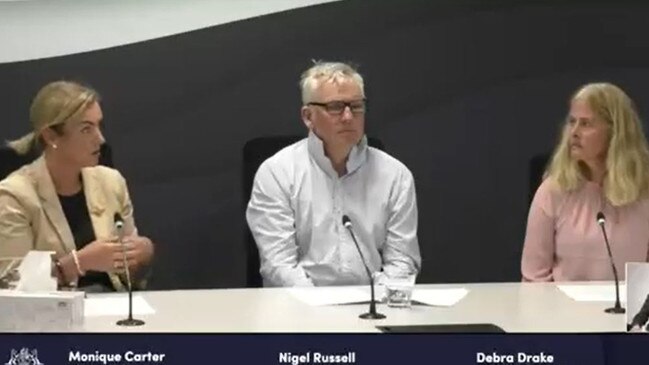
Mr Russell – who said he “fell in a heap” over the incident, took months off from work as a result of the episode.
He said he felt “really angry” about the lack of support from his workplace.
“Over the last little while, or maybe decade, there’s been quite a bit of austerity within the department, and education has been distilled down to literacy – primary, and numeracy – secondary, and all the other subjects … are a tertiary concern,” he said.
“Education’s a social investment.
“The perpetrator of the sexual assault in my class … for that young man, he needed some social and emotional education and it’s not being offered. Well it is being offered, but at a token suggestion, because of the resourcing.”
Mr Russell said the perpetrator dropped out of school in Grade 8.
“Education’s not a reward for good behaviour,” he said.
“That’s done nothing for him, his family, his community. We can do better than that.”
Survivor reveals how school chastised her over teacher abuse
Child sexual abuse survivor Katrina Munting can’t find words strong enough to express her “disdain” for the way Tasmania’s state school system let her down.
Ms Munting was groomed and abused by her teacher during the 1990s, when she was a studious Grade 9 pupil who dreamt of being the first person in her family to attend university.
But when her school discovered what had been happening over two years, Ms Munting felt like the blame was placed squarely upon her.
On Tuesday, Ms Munting tearfully told Tasmania’s child sexual abuse commission of inquiry how a teacher “chastised” her in the library – but never told her abuser, Peter*, to stop.
“He sat me down and said to me, it has been noted that you spend a lot of time with Peter, and that is not normal, to which I was mortified,” Ms Munting said.
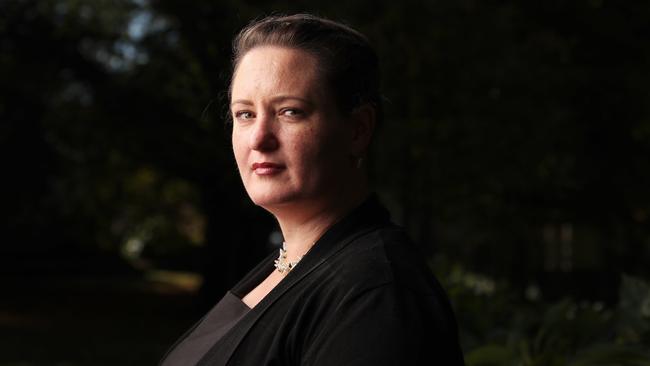
“I was so scared because my world was about to end, essentially, my goals, my perception of what life was going to be, had just been shattered.
“I didn’t know what my parents were going to say or do. I felt that it was all my fault and I didn’t know what to do.”
Ms Munting said she ran crying from the library, and only much later found out Peter had been approached too.
“He was told to watch himself. That was it,” she said.
“They had mortified me by what they had said, but what’s even worse is they had acknowledged what they thought was going on, but then did not make it stop. The abuse continued. He did not desist.”
Ms Munting said the school’s way of dealing with Peter was “pathetic”.
“He could do what he wanted, he wasn’t going to get in trouble.”
Peter has since been jailed for the abuse he inflicted upon Ms Munting, but the survivor says she continues to feel let down by the system that employed him.
She said she sent no fewer than 16 letters to former Education Minister Jeremy Rockliff asking for a meeting, only to be ultimately “palmed off” to a senior bureaucrat in the department to “shut me up”.

Still to this day, Ms Munting said she had never been provided with support by Tasmania’s department of education.
“There aren’t adequate words, to be honest. It was beyond devastating, it’s beyond mortifying, it’s beyond horrific. I can’t find a strong-enough word to reflect my disdain for the school, for the education department in the way they let me down,” she said.
“Despite all the words that they’ve been using in the media … all those words, they’re hollow.”
She didn’t believe comments from the government that it was now “looking after” and “supporting” survivors.
“I don’t know what survivors they’re reaching out to, I don’t know how many or where they are, but I’m certainly not one of them.”
* Name anonymised by the commission of inquiry.
‘Deeply disturbing’: Education department’s record-keeping detailed
The safety of children from sexual predators in Tasmania’s state schools – and the education department’s failures to protect students – is under the microscope this week.
On Monday, the beginning of week two of the child sexual abuse commission of inquiry, two academics who conducted an inquiry into the department revealed a “deeply disturbing” lack of proper record-keeping.
International law academic Tim McCormack said he and forensic psychologist Stephen Smallbone were provided with a spreadsheet of “allegations of wrongdoing” – but found “all sorts of inconsistencies in the keeping of the records”.
“(It was) increasingly frustrating for us as we tried to undertake our work,” he said.

Professor McCormack said the pair wasn’t obstructed from access – but it was difficult to identify where the records were and what state they were in – meaning they couldn’t find details they needed or conduct high-level analysis of trends.
Professor Smallbone said it was an example of a system concerned about “outcomes of abuse rather than the causes”.
He said the “overwhelming majority” of complaints had come from parents and students, not from the department itself or other teachers.
Professor Smallbone noted most organisations were worried about “reputational risks” – and that publishing details of sexual abuse presented a dilemma because it invited “a level of scrutiny that is often not comfortable.
He said many organisations also had a “natural gravitational pull” to the interests of adults, which could often be a “kind of unconscious bias”.
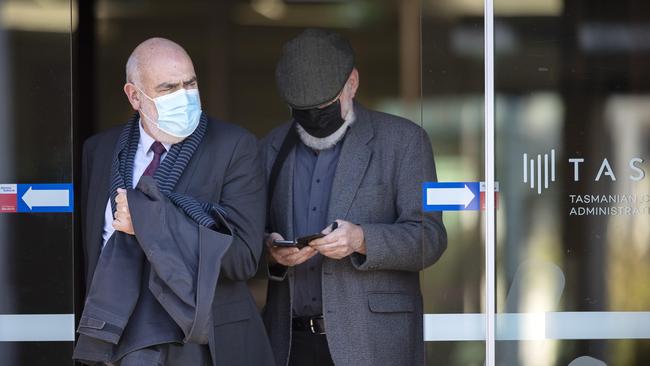
Also on Monday, a victim-survivor who now works as a senior social worker for the department, revealed children had been returned to dangerous homes due to systemic failures.
Kerri Collins said the Advice and Referral Line (ARL) – described as the first port of call in reporting child abuse or safety issues – simply “doesn’t work”.
“We’ve had children who have disclosed sexual assault from a family member and we’ve had to send that child home because the ARL won’t respond,” she said.
“We’ve had an instance where there was a disclosure of rape, police became involved and the family member admitted to that rape, but the ARL hadn’t even done the police referral and the child was still in the home.
“There have been incidents where we’ve phoned police, they’re so tied up, there’s nothing else we can do. We’ve got no power to keep the child at school, ARL won’t send it through to Child Safety, so the child has to go home.”
Child sexual abuse survivor reveals years of not being believed
THE system never believed child sexual abuse survivor Kerri Collins.
She’d always loved school and was considered something of a “goody-two-shoes”.
Then in the late 1980s, she was sexually abused by a teacher, John*.
John was young, well-liked and energetic – but it was a facade for the two years of abuse he subjected Ms Collins to, along with several other girls.
Eventually when she was 11, Ms Collins told her school counsellor what had been happening.
“We were called individually to the principal’s office,” Ms Collins said while giving evidence on Monday at Tasmania’s child sexual abuse commission of inquiry.
“He had the female assistant principal also present, and he questioned us about what happened. He asked me to sit on her knee and demonstrate the position I was in when I was sexually assaulted by John.”
Ms Collins – who is now a senior social worker herself – said the experience was “highly inappropriate” and “retraumatising”.

But Ms Collins’ experience with reporting child sexual abuse was about to get even worse.
She said while her parents “definitely” believed her, her school never did – with some teachers not speaking to her, and receiving absolutely no support or acknowledgment.
John ran from the school when her dad, and some of the other dads, went to speak to him.
“After that, he was moved to a different school.”
The complaint Ms Collins she made to police also went nowhere, with the matter never referred to the Director of Public Prosecutions (DPP).
“It doesn’t surprise me that the system’s failed, because all the way through it has, and it still continues to.”
In 2001, she decided to go back to Tasmania Police.
“It really came crashing down on me that he’s still teaching children. He’s allowed to be in a classroom and he was working in a primary school,” she said.
“There had to be more victims … because it doesn’t just stop.”
While her second experience with police was better, with trauma-informed officers, ultimately John’s Supreme Court trial was abandoned by the DPP as a guilty verdict could not be guaranteed.
Ms Collins paid a private lawyer to help, and even went to the Commissioner for Children and the Teachers Registration board – but all these paths also led nowhere.
“I couldn’t go any further with trying to prevent him teaching in a school,” she said.
“I just felt like I was another one of the cases that have come forward that weren’t believed.
“I had been beaten. I’d exhausted every possible avenue.”
In 2018, Ms Collins returned as a social worker to the school she’d been abused at – to discover someone had made a complaint about John to the federal child abuse royal commission.
While Ms Collins’ case could not be reopened, her understanding was that John was suspended – but still employed – after allegations raised in the royal commission from another victim.
“I don’t have faith in the system.”
The commission of inquiry is currently in its second week of public hearings.
* Name anonymised by the commission of inquiry.
Calls for a Children’s Guardian in Tasmania
THE state government would wait to see the recommendations from the Commission of Inquiry before deciding whether a new body was needed to protect children, Attorney-General Elise Archer said.
In her written submission to the Commission of Inquiry into the Tasmanian Government’s Responses to Child Sexual Abuse in Institutional Settings, Commissioner for Children and Young People Leanne McLean suggested the government consider a new child protection body.
“I would support the establishment of a separate Children’s Guardian in Tasmania,” she wrote.

“For example, the functions of the existing Office of the Public Guardian Tasmania could be extended to accommodate advocacy functions for children and young people in the child protection system (including out-of-home care), youth detention, a disability service, or a mental health facility,” she wrote.
“A second option is to establish both guardianship and systemic monitoring, oversight, and regulatory functions within a single Commission.”
“In my respectful opinion, Tasmania needs to significantly expand its investment in various oversight mechanisms including for child-safe standards and a reportable conduct scheme, as well as individual advocacy for children and young people through some child guardian-like functions.”
She acknowledged that “significant additional investment” might be required.
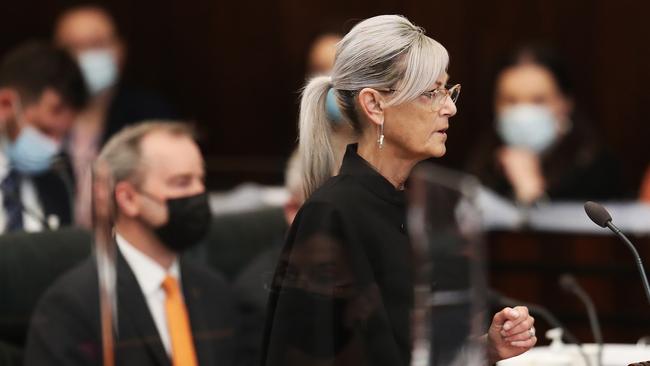
Attorney-General Elise Archer said the government was open to any recommendation that would improve the safety of children.
“Anything that comes up the Commission of Inquiry, we have said that we will look at it,” she said.
“We’re not going to provide a running commentary daily in relation to the Commission of Inquiry, we’ll let it do its work and let the Commission of Inquiry release its recommendations at the end and the government has said that we’re looking at all of those recommendations.”
“If the commission inquiry makes recommendations on its way through, then, of course, we’ll take that on board and implement those sorts of recommendations.”
And Ms Archer defended the Department of Justice’s slow response to recommendations from the federal Royal Commission three years ago _ some of which remain up to four years away.
“We don’t shy away from the fact that there is always more reform to do but these are often quite complex matters that need to be dealt with, for example, the child safe framework and reportable conduct scheme, I’ll be introducing that into parliament this year,” she said.
“The government takes full responsibility for matters that need to be implemented. There is that leadership and we’ll provide it when necessary.”
Ms Archer said the state had enacted 195 out of 409 recommendations from the Royal Commission and was making progress on the other 90 that required action from the state.




